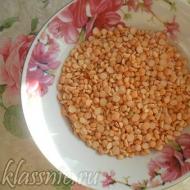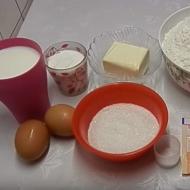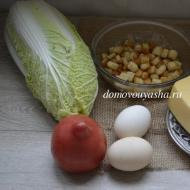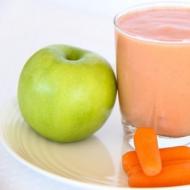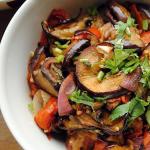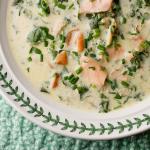
1 tablespoon of raisins calories. Raisins: calorie content and energy value of dried fruit. Use in cooking
Raisins with seeds (dried grapes) rich in vitamins and minerals such as: potassium - 34.4%, phosphorus - 16.1%, iron - 16.7%, manganese - 13.4%, copper - 30.2%
What are the benefits of raisins with seeds (dried grapes)
- Potassium is the main intracellular ion that takes part in the regulation of water, acid and electrolyte balance, participates in the processes of conducting nerve impulses and regulating pressure.
- Phosphorus takes part in many physiological processes, including energy metabolism, regulates acid-base balance, is part of phospholipids, nucleotides and nucleic acids, and is necessary for the mineralization of bones and teeth. Deficiency leads to anorexia, anemia, and rickets.
- Iron is part of proteins of various functions, including enzymes. Participates in the transport of electrons and oxygen, ensures the occurrence of redox reactions and activation of peroxidation. Insufficient consumption leads to hypochromic anemia, myoglobin deficiency atony of skeletal muscles, increased fatigue, myocardiopathy, and atrophic gastritis.
- Manganese participates in the formation of bone and connective tissue, is part of enzymes involved in the metabolism of amino acids, carbohydrates, catecholamines; necessary for the synthesis of cholesterol and nucleotides. Insufficient consumption is accompanied by slower growth, disturbances in the reproductive system, increased fragility of bone tissue, and disturbances in carbohydrate and lipid metabolism.
- Copper is part of enzymes that have redox activity and are involved in iron metabolism, stimulates the absorption of proteins and carbohydrates. Participates in the processes of providing oxygen to the tissues of the human body. Deficiency is manifested by disturbances in the formation of the cardiovascular system and skeleton, and the development of connective tissue dysplasia.
You can see a complete guide to the most useful products in the appendix.
There is probably no person who has never eaten raisins. Dried ripe grapes are an excellent delicacy that can become a wonderful dessert. Raisins are also often added to various dishes, which gives them a special delicate taste. It could be rich pastries or pilaf, a delicious salad or a fruit dessert. Raisins will be appropriate in any dish.
How many calories are in raisins?
Let's think about how many calories are in raisins and how healthy they are.
There are a huge number of grape varieties in the world. It differs in its purpose - table or wine, in the shape of the berries, taste, color, presence or absence of seeds, calorie content, amount of nutrients, and so on. Berries of any variety can be dried, but not all of them will turn into raisins.
Raisins are made from table grape varieties with a sugar content (fructose, sucrose) of at least 20%. But it is worth noting that different types of raisins will vary greatly in calorie content and content, microelements and nutrients.
How many calories are in black raisins?
It is impossible to say absolutely exactly how many calories are contained in black raisins. This depends not only on the variety, but also on the area in which the grapes grew, whether the year was sunny, how much precipitation fell, etc.
On average, black raisins contain 250-260 kcal per 100 g. If we are talking about seedless raisins (aka raisins), then their calorie content increases to 270-300 kcal.
Raisins belong to the group of dried fruits that contain much more substances beneficial to the human body than the same berries in their fresh form.
Black grapes are more nutritious and contain more vitamins and fruit sugar than white ones, which means that raisins from such grape varieties are healthier, but also more nutritious.
The calorie content of light raisins is slightly lower than that of black ones. However, this difference is insignificant. On average, this is 240-260 kcal per 100 g. The main difference between black and white raisins can be called the sugar content. In white it is much lower, so this type of raisin can be added in small quantities to dishes even for people with diabetes.
In addition, white grapes, and therefore raisins, are less allergenic. For this reason, white raisins are recommended for young children.
Raisins and their calorie content in a dietDried grapes are very useful. Therefore, despite its relatively high calorie content, raisins are often added to the diet when dieting.
Firstly, because during the diet, the body must receive a sufficient amount of nutrients, as well as useful microelements and vitamins. Together with raisins, we get potassium, which is necessary for the heart muscle, fiber, which is good for digestion, and fructose, which stimulates mental activity. In addition, raisins contain compounds that promote rejuvenation of the body.
And secondly, no diet will be effective if during its process a person is hungry all the time. Upon completion of such  diet, the weight is quickly gained again, and with interest. That’s why it’s so important that diet food is tasty and healthy. By adding grapes and raisins to your diet, you achieve this result.
diet, the weight is quickly gained again, and with interest. That’s why it’s so important that diet food is tasty and healthy. By adding grapes and raisins to your diet, you achieve this result.
Calories and raisins
Raisins are undoubtedly healthy and tasty. It is often included in vitamin mixtures that are necessary to maintain the body during colds or after serious illnesses.
However, with frequent and abundant consumption of raisins, we risk gaining excess weight.
If you are looking after your health and figure, include raisins and grapes in your diet, but be careful in moderation.
Raisins have been familiar to us since childhood. Dried grapes are widely used in cooking because they add piquancy and an unusual taste to any dish - be it stews, baked goods or oatmeal.
Is it acceptable to use raisins for weight loss and how many calories are in raisins? After all, raisins are dried grapes, and we know that grapes are very high in calories.
Indeed, the calorie content of raisins is very high - from 260 to 300 kcal per 100 grams of dried berries. The basis of the calorie content of raisins is the simple carbohydrates they contain - sugars (glucose and fructose). But the high calorie content of raisins does not prevent them from being a healthy product, which is recommended to be consumed during weight loss diets.
The effectiveness of raisins for weight loss is explained by its ability to break down fats. In addition, raisins are very filling, and even a small handful of these berries can satisfy your hunger if you suddenly want to eat between main meals. How many calories are in raisins practically does not depend on their color, but nutritionists recommend using dark raisins for dietary purposes. It has the ability to increase the level of hemoglobin in the blood and strengthen the immune system, and in addition, it effectively fights fat deposits. The calorie content of both light and dark raisins is approximately the same and depends more on the grape variety and processing method.
Although the calorie content of raisins is quite high, you still won’t be able to eat a lot of them - in order to get enough of raisins, just a handful of 30 grams is enough, and this is only 80 kcal. The effectiveness of raisins for weight loss is also explained by the fact that it improves the functioning of the digestive system, liver, kidneys and has a mild laxative effect. Therefore, if you experience constipation during your diet (which happens quite often), start drinking raisin decoction and eating these berries, and don’t worry about the calories contained in raisins - 1 handful of this dried fruit a day will not ruin your diet.
Despite the high calorie content of raisins, they can and even should be eaten during diets - it allows you to give up higher-calorie and less healthy confectionery and sweets, while the composition of raisins is rich in substances necessary for the body, which are not found in any sweets and cakes. In addition to its benefits, raisins will also reduce stress during a diet, easily replacing your usual sweets. It is effective in fighting hunger, and also improves the functioning of the liver, kidneys, intestines and stomach and will give you enough energy to feel energetic for a long time.
Raisins are also effective for cleansing the body due to their laxative and drainage effect, which compensates for the high calorie content of raisins - raisins contain only “useful” calories, that is, not those that are stored in fat cells, but those that give the body vigor; well, removing excess salt, water and toxins from the body and cleansing the intestines improves the absorption of substances from food, regulates metabolism and prevents the appearance of excess weight.
The benefits of raisins
We talked about the calorie content of raisins, now it’s worth saying a few words about the nutritional value and nutritional composition of this dried fruit. 100 grams of raisins contain a little more than 3 grams of protein and about 0.5 grams of fat (mostly healthy unsaturated fats). There are almost 80 grams of carbohydrates in 100 grams of raisins, of which 60 grams are simple carbohydrates (sugars). They serve as the main source of caloric content of raisins. Raisins contain about 4 grams of fiber, as well as microelements - sodium, potassium. Potassium is necessary for our muscles (including the heart muscle) and blood vessels, so the high (about 750 mg per 100 g of raisins) potassium content makes raisins very beneficial for the heart and blood vessels. In addition to sodium and potassium, raisins contain microelements such as magnesium, phosphorus, zinc, boron and iron. Thanks to magnesium and phosphorus, raisins stimulate brain activity, and iron protects against anemia (this is especially useful for women who regularly lose blood during menstruation). Raisins contain vitamins PP (niacin), B1 (thiamine), B2 (riboflavin), C, tartaric and oleanolic acids, proteins. Niacin has a beneficial effect on nerve cells and regulates their activity.
However, we value this product not only for the calorie content of raisins and the presence of vitamins. Raisins are effective for cardiovascular diseases and nervous system disorders - they are great for calming. Raisins are an excellent preventative against anemia, soothe fever, and have a beneficial effect on the digestive system, kidneys and liver. Raisins are very useful for gums and teeth, and its decoction is used to treat stomatitis and bleeding gums, as well as coughs and pneumonia.
Another pleasant property of raisins is their effectiveness in stimulating sexual arousal and erection.
However, raisins also have contraindications. This dried fruit should not be consumed if you have a stomach or duodenal ulcer, diabetes, or enterocolitis. Active pulmonary tuberculosis. The high calorie content of raisins is a contraindication for its consumption by obese patients.
Raisins for weight loss
If you do not have diseases of the intestines, liver, kidneys, or gall bladder, then you can use raisins for weight loss despite the high calorie content of raisins.
A decoction of 1 glass of light raisins, 200 grams of senna, 1 glass of rosehip syrup and 2 liters of water promotes weight loss and improves intestinal function. To prepare the decoction, you need to pour boiling water over the raisins separately and senna separately, after an hour, strain both decoctions, mix and add rosehip syrup. This decoction is stored in the refrigerator and taken 1/3 cup before bedtime.
You can also prepare a decoction based on raisins, senna and holosas. To do this, pour 150 grams of black raisins into a saucepan with 1.5 liters of water, bring to a boil and cook for about 5 minutes, then add senna (30 grams of herb), boil for 10 minutes and remove from heat. After the broth has cooled, add 150 ml of holosas, mix and strain. This decoction should be taken half a glass 1 hour after meals. The course of admission is 2 weeks. After a 2-week break, the course can be repeated.
Another recipe for weight loss with raisins is raisins with prunes, rose hips and honey. For it you need to take: 100 grams of white raisins, 100 grams of dried apricots, 200 grams of dried rose hips, 50 grams of senna, 400 grams of prunes and liquid honey. All ingredients are crushed in a blender and mixed well with honey; this mixture is taken in the morning on an empty stomach and in the evening before bed, 1 tablespoon.
You can also simply brew a handful of raisins with a glass of boiling water - you will then eat the berries and drink the broth.
If in 1-2 days you have an important event before which you want to lose weight, you can arrange a fasting day with raisins. To do this, take 1.2-1.5 cups of raisins and soak them in warm water overnight. The next day, eat only these raisins and drink enough water - at least 1.5 liters. Raisins will cleanse your body and remove excess water, and, despite the high calorie content of raisins, you will eat no more than 800 kcal for the whole day - this amount will be enough for you to be cheerful and not feel hungry, but your intestines and stomach will be cleansed will slightly decrease in volume, and excess fluid will be removed from the body tissues.
Popular articles Read more articles
 02.12.2013
02.12.2013
We all walk a lot during the day. Even if we have a sedentary lifestyle, we still walk - after all, we...
610367 65 More details
Perhaps the most popular dried fruit that everyone knows is raisins. This product has been familiar to us since childhood, because it is often added to porridges, casseroles and compotes. Raisins are dried grape fruits. All the benefits of grape berries are preserved in the dried product, and some properties are even multiplied. The very name of this dried fruit comes from the Turkish language; raisin means “grapes”.
Berries can be dried naturally - by absorbing sunlight, or using special dryers. In the first case, the berries turn out to be inconspicuous, but when dryers are used on an industrial scale, they acquire a marketable appearance due to the addition of preservatives and other additives, which negatively affects the quality of the product.


Composition and nutritional value
Raisins are a fairly high-calorie product, as they contain a lot of sugars. The amount of carbohydrates in 100 grams of this dried fruit ranges from 65 to 80 grams. Such a wide range is explained by the fact that raisins are prepared from different varieties of grapes, and even depending on the year, the nutritional value of the product may vary. The calorie content of raisins can also fluctuate due to many factors - the method of drying the berries, how long ago they were produced, and compliance with storage conditions. Typically, the calorie content of the product is from 250 to 300 kcal per 100 grams.
The nutritional value of raisins is based on their nutritional value; on average, it is less than 3 grams of protein, only 0.5 grams of fat and up to 80 grams of carbohydrates. As you can see, most of the calories in raisins come from carbohydrates - fructose and glucose, which give the dried fruit its sweetness. At the same time, the grapes from which raisins are made have KBJU - 70 kcal/0.5g/0.5g/20g. Therefore, dried grapes are not considered a dietary product. Its glycemic index is 65 units, which is quite high.

Beneficial features
During the drying process, grapes leave almost all the benefits in the raisins; only 20% of the vitamins are not retained, but the entire set of macro- and microelements is fully present in the dried “brother”.
Depending on the variety of grapes used, not only the energy value will vary, but also the vitamin and mineral composition of the product. Thus, raisins made from light grapes have more calories than dark ones.
The following types of raisins can be distinguished:
- medium-sized, yellow, from light or green grape varieties, considered the most useful among other types, contains no more than 260 kcal;
- dark or light, without seeds inside, made from Kishmish grapes, has the highest calorie content, up to 290 kcal;
- dark, brown, with 2-3 seeds, made from grapes with oblong berries, considered the leader in sweetness, has a calorie content of about 260 kcal;
- very large, with one seed, sometimes called “hermine”, contains 265 kcal.



Eating raisins has a positive effect on the body thanks to the whole vitamin complex:
- beta-carotene (vitamin A) – good for eyes and skin;
- nicotinic acid (vitamin PP) – has a positive effect on the functioning of the brain;
- B vitamins that normalize the functioning of the nervous system;
- ascorbic acid (vitamin C) – increases immunity, strengthens blood vessels;
- vitamin K – responsible for blood clotting;
- Vitamin E is one of the most powerful antioxidants, prevents the harmful effects of free radicals, and is beneficial for reproductive function.

The mineral composition is also very rich - raisins contain:
- sodium and potassium, which normalize the functioning of blood vessels and the heart;
- calcium, which is involved in muscle function and bone formation;
- magnesium has a positive effect on the functioning of the nervous system;
- iron, the main element responsible for hematopoiesis;
- phosphorus, which affects the speed of brain processes;
- zinc, which has a healing effect on the skin.

In addition to vitamins and minerals, raisins are a source of fiber - about 5%.
Raisins have the following beneficial qualities:
- helps with constipation due to its fiber content;
- has immunomodulatory properties;
- has a positive effect on the functioning of the cardiovascular system;
- stimulates brain activity, useful for children and people who regularly experience mental stress;
- evens out blood composition, maintains cholesterol and sugar at proper levels;
- contains substances that help reduce weight;
- has a positive effect on the condition of the gums when they bleed;
- helps with respiratory diseases, raisin infusion is used for bronchitis;
- useful during pregnancy as an additional prevention of iron deficiency anemia.

Harm to the product
In addition to many beneficial properties, raisins also have some contraindications.
- You should not eat raisins if you are obese due to the increased calorie content of the product.
- Not recommended for consumption by diabetics; raisins contain a huge amount of fast carbohydrates.
- Allergic reactions to grapes. To check, you need to eat 1 piece and observe the reaction for 48 hours.
- Diseases of the gastrointestinal tract, peptic ulcer.
- Tuberculosis.
- Diseases of the biliary system.

Features of use
Despite their increased calorie content, it is advisable to consume raisins during weight loss.
The beauty of eating raisins during weight loss is that the concentration of vitamins and minerals in them is very high, and by eating just a few raisins a day, you can replenish the balance of these substances by cutting back on your diet.
Once in the body, raisins are saturated with moisture, swell, and thanks to this leads to rapid saturation. The fiber in the composition helps cleanse the gastrointestinal tract of toxins and waste, and also has a positive effect on bowel regularity.

Another positive property of this dried fruit is its sweet, bright taste, which can completely replace sugar in dishes. For example, adding a few berries to cottage cheese or porridge can make the dish more interesting and tastier, while adding much more benefits than a spoonful of refined sugar.
When losing weight, you can use raisin compote on an empty stomach; consuming it saturates the body in advance and allows you to consume less of the main dish.
Frequent and excessive consumption of raisins contributes to the rapid gain of extra pounds, so moderation is important. For a person on the path to slimness, you should not consume more than 2 tablespoons of raisins per day. On average, 1 tablespoon contains 25 grams of raisins, which is about 70 kcal.
Energy mixtures are often made with raisins. Several types of dried fruits are taken - for example, prunes, dried apricots and raisins. Honey, nuts and rose hips are added.
This composition helps well during the cold season, saturates the body with antioxidants, vitamins and iron.

In Tibet, raisins are credited with many miraculous properties. One of the uses is to remove kidney stones using dark raisins and black pepper.
Let's consider the scheme for using this tool.
- Instead of a seed, place 1 black peppercorn in the raisin. On the first day, 1 raisin is consumed, on the second - 2, and so on, increasing until the tenth day, on which you need to eat 10 pieces. On the 11th day there are also 10 pieces and then, in descending order, on the 12th day - 9 pieces and so on until the 20th day, on which 1 piece is consumed.
- After such a 20-day course, a break is taken for 3 days, during which you need to use diuretics and drink plenty of fluids. Then the course is carried out twice more. In total, treatment with this method takes 69 days.
- After this course, it would be useful to undergo an ultrasound examination to ensure the success of the treatment.
To learn about the benefits of raisins, watch the following video.
4.7 out of 5
The Middle East and the Mediterranean are considered the birthplace of raisins. Translated from the Turkic language, raisins mean “dry wine berry”, “dried grapes”. Raisins, indeed, are nothing more than dried grapes. Raisins retain 100% of all minerals contained in fresh grapes, as well as up to 80% of vitamins. Of course, different varieties have some differences in their chemical and vitamin composition. The amount of beneficial substances in dried wine berries is also affected by processing technology.
Raisins for weight loss
Every diet claims that if you want to become slimmer, you must limit yourself to sweets. However, many diets claim that, Despite the high calorie content, you can still eat raisins when losing weight. True, in small quantities, but it’s possible. And even very useful. For example, you can eat a handful of raisins during second breakfast or as an afternoon snack. Contradiction? Paradox? - Not at all. The calorie content of raisins is indeed high, averaging 265-270 kcal per 100 g of product. But, firstly, raisins, although pleasant, have a very rich taste, and therefore it is almost impossible to eat more than 50-70 g at one time.
Secondly, raisins perfectly satisfy hunger and cravings for sweets with more calories (for example, chocolate, cakes), and provide a feeling of fullness for a long time.
Finally, raisins are so rich in nutrients that they can compensate for the deficiency of minerals and vitamins that often arise when following various diets. Besides, With a high sugar content and high calorie content, raisins provide the body with energy, which is necessary for muscle work. And this is fundamentally important for those who, trying to become slimmer, not only reviewed their nutrition system, but also pay attention to physical activity. Therefore, it is not surprising that raisins are used quite often for weight loss.
Raisins are tasty on their own, but they can also be added to various dietary dishes, such as porridge and salads. During diets, it is often recommended to use raisin decoction (sugar-free compote) as a vitamin and energy drink.
In addition, raisins are used for weight loss in the preparation of laxatives and cleansers.
Here is the recipe for one of them:
- pour 1 liter of boiling water over 200 g of senna herb and leave to steep for 1 hour;
- steam 200 g of washed white raisins with 1 liter of boiling water and also let it brew for 1 hour;
- then mix both infusions, add 300 ml of Holosas, prepared on the basis of rosehip syrup (sold in pharmacies without a prescription).
The infusion is taken every evening before bed, half a glass. The prepared product should be stored in the refrigerator. You can use it to cleanse the body no more than once every six months.
Types of raisins, calorie content of different types of raisins
Today it is customary to distinguish four main types of raisins:
Kishmish (aka sabza) is a light, small, almost transparent, seedless raisin with a very sweet taste. The calorie content of this type of raisin is the highest and reaches 280-290 kcal per 100 g;
korinka (also known as bidana, bedona, shigani) – small, seedless raisins, the color of strong tea. It is believed that this type of raisin is the healthiest. Corinka can be of two types: soft, very sweet, or slightly dry and much less sweet in taste. There are also a lot of calories in soft raisins - about 285 per 100 g. The calorie content of raisins with a lower sugar content is no more than 260 kcal;
germina is a very large and surprisingly pleasant-tasting raisin, with 2-3 seeds, made from elongated berries of the “lady fingers” or “husaine” grape varieties. Germine raisins contain no more than 265 kcal calories;
medium-sized raisins, dark olive color, with one seed. The calorie content of this type of raisin is 260-265 kcal..
Useful properties of raisins
Raisins are a valuable food product not only due to their exceptionally pleasant taste. These dried fruits have high nutritional value and high content of minerals and vitamins.
Raisins contain about 3 g of protein, approximately 0.6 g of fat, 65-67 g of carbohydrates per 100 g of product. High-quality raisins contain no more than 21-23% moisture. 1.2% comes from fiber.
Raisins contain mineral salts of magnesium, iron, chlorine, manganese, boron and fluorine. But raisins are richest in potassium, a mineral necessary for normal heart function.
The vitamin composition of raisins is also impressive. Dried grapes contain vitamins A, C, PP (niacin, also known as nicotinic acid), and B vitamins.
Systematic consumption of raisins helps maintain healthy teeth and oral cavity, improves overall tone, improves immunity, and prevents cardiovascular and respiratory diseases. Raisins are very useful for people engaged in mental work and for pregnant women. Thanks to high calorie content of raisins and their rich vitamin and mineral composition, dried grapes are definitely included in the menu of athletes and children.
Based on raisins, many medicinal products are prepared according to folk recipes.
However, since the calorie content of raisins is quite high, this dried fruit should be eaten with great caution by those who are overweight. When controlling your weight, when creating menus and preparing dishes, you should definitely take into account how many calories are in raisins added to certain dishes. Even in cases where very few raisins were added.
How many calories are in 1 teaspoon or tablespoon of raisins? In 1 glass? This is not difficult to calculate, knowing how many grams of product a particular measure contains.
So, 1 teaspoon contains 5 grams of raisins. Let's make a simple proportion based on the fact that calorie content of raisins (100 g) is 270 kcal, and we get: 13.5 kcal.
One tablespoon contains 25 g of dried grapes. This will be 67.5 kcal.


